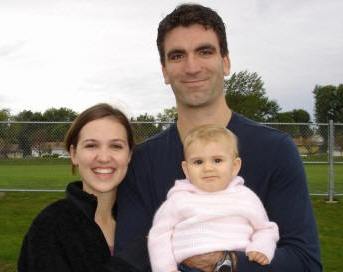1. What makes your program different from
other programs, or what made you choose your program?
Regions
is a blend of county and community in a collaborative
environment with a great relationship between the faculty and
the residents. I felt that it was a place in which I could
become an excellent clinician and would prepare me for a career
in either academic or community practice, in either an urban or
rural location.
2.
If not answered above, what's the best aspect of your program?
The relationship with
faculty.
3. Are there any
major upcoming changes to your program?
Our program is benefiting
from an update to our ultrasound curriculum. It is further
benefiting from close relationships with reciprocity between us
and Hennepin county, and to some respects Mayo's Emergency
medicine program as well, having interdepartmental conferences,
and in the case of Hennepin swap rotations there.
4. Is
there anything you would change about your program if you
could?
I would prefer that there be
one more month of elective at some point during the residency
allowing for a greater degree of self directed learning.
5.
How much are you responsible for blood draws, putting in IVs,
etc.?
Only to the extent that you
want to do it, we never have to do this unless the nurses are
unable to after having tried 2-4 times, and then it's usually
either putting in a central line, an IO, or using the Ultrasound
fo PIV insertion.
6. Do you
learn mostly from attendings, other residents, or textbooks?
Does this vary when you do off-service rotations?
Both in the ED and on other
services in the hospital, primarily learn from attendings.
Upper level residents are available for guidance if so desired,
but you are directly reporting to the attendings in all years.
7.
How does EMed rank in your hospital's hierarchy?
It's the main residency
program, we have University of
Minnesota
surgery, OB, and
medicine residents rotate through the hospital, but we're the
only residency based in the hospital, so Emergency medicine
ranks very high in the hospital's hierarchy.
8.
What are the perks that your school provides (PDAs, textbooks,
conference fees, meal tickets, etc.)?
100$ for books as a G1, 300$ as a G2, 100$ as a G3, also
provides meal card to be used at any time, yearly limit of
roughly 1000$. Pays to go to SAEM for all the G1 residents.
The book money can be spent on a PDA or PDA program.
9. How do you
rate your rotations outside of the emergency department?
In general very well, low amount of scut work, and high
percentage of time with direct attending interaction.
10.
What's the best elective you've done?
Haven't done one yet, though will likely be doing one this
winter as an international elective in
Ecuador.
11. How much
does your program focus on research?
Research is available for
those who want to do it, there are multiple research projects
active in the department, but honestly it isn't viewed as a
residency priority probably and I would say that this would be a
weaker area here if there is one.
12.
What do you love and hate most about the city you're in?
I love St. Paul and the twin
cities for their parks and outdoor activities. Lots of lakes,
rivers, running and biking trails. I also enjoy the food, there
are many good residents. The winters are probably the only
detractor of the twin cities, that and they are a long way from
an ocean, otherwise there aren't a lot of down sides to the twin
cities.
13.
Please describe your typical month in terms of work hours and
days off.
Typical month of a 28 day
cycle is 21 shifts in the ED, they're 8 hour shifts for the G2
and 3s, 9 hour shifts for the G1s. Typically 1 full weekend a
month off, 1 week of the shifts is a week of nights. Schedule
is built into a circadian rhythm so there are no crack back
shifts (8 hours off and then back on).
14.
How much time do you spend off-duty with the other residents?
Probably on average I spend
around 1-4 hours a week with residents outside the hospital, I'm
married with a daughter, some people spend more than that.
We'll often go out for breakfast with staff after night shifts,
often go out for a drink with residents and or staff after an
evening shift.
15. Do you have any
international experience?
Residents from Regions have
rotated in the past to New Zealand and elsewhere, currently I am
planning a rotation to Quito, Ecuador, as part of my elective,
and this is a rotation that the residency hopes to make a
regular occurrence (1-3 residents rotating down there every
year). This elective will include medical Spanish immersion
experience along with work in the major public teaching
emergency Dept. in Quito.
16. What are
your plans after residency?
Undecided.
17.
How prepared do you feel?
Well prepared, feel
comfortable managing airway and codes with progressive
responsibility in the ED, beginning managing the airway as a
first year resident.
18.
Is there anything you'd like to tell us that we haven't asked?
Not really, good
questionnaire.
19. Do you have any advice for current applicants, or is there
anything you wish you'd known when you were applying?
Be sure to attend the social
gatherings offered by the residency and try your best to get a
feel for the interaction between residents and staff, and go
where you feel comfortable.
